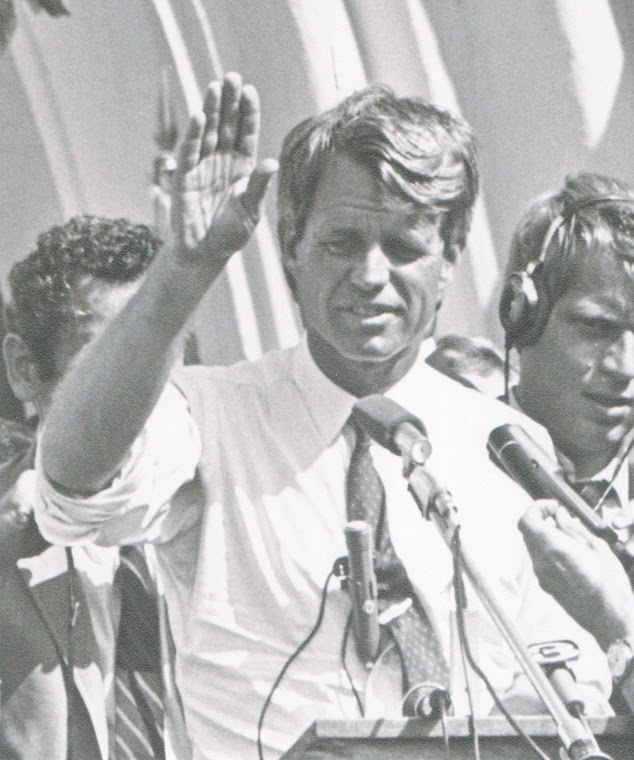Thursday, June 12, 2008
Wednesday, June 11, 2008
Our 40th Reunion- finito
24 members of the class of 1968 ventured to the Mesa to attend our 40th reunion. I would say it was an extraordinary experience for most if not all. Details will be forthcoming via pictures taken......in the meantime, if you want to commemorate your experiences/feelings/thoughts about our reunion, please do so. Thanks again to Don for making all the food arrangements with our chef, providing his own farm lemons and procuring the libations - thanks to Billy to letting us 'borrow' his home for Saturday dinner - thanks to the East Beach Grill for accomodating our crowd and letting us stay almost three hours - and thanks Santa Barbara for bringing us 70-degree weather accompanied by the sun (the fog pretty much stayed away)
Tuesday, June 3, 2008
Attendees as of June 2nd
As of June 2, 2008
Cate Class of 1968 40th Reunion Attending (24 classmates and 8 spouses/partners):
Saturday Dinner: 28 Sunday Breakfast: 28
Duncan Agnew and Kathy
Chris Blake
Don Davis and Wendy
Billy Steinberg
Albert Elzas
Fred Fisher
Courtney Price
Carroll Joynes
Doug Dyer
Phil Irwin
Earl Maize and Rosina- Friday and Sunday
John Newnam
Michael Ladner and Laurie – Saturday only
David Chan – only able to attend Friday’s events
Stuart Anderson and Kim
Steve Gordon and Kathy
Dick Wheeler
Fred Bradley – Saturday and Sunday
Bob Marx
Hal Burroughs - Saturday and Sunday
Bill Noble and Mary
Simon Gaskell
Scott Anderson and Dianne
Matt Walton
Faculty/Staff:
Janet Davis
Betty Woodworth
Gaby and Selden Edwards
Sandy Smith
Cate Class of 1968 40th Reunion Attending (24 classmates and 8 spouses/partners):
Saturday Dinner: 28 Sunday Breakfast: 28
Duncan Agnew and Kathy
Chris Blake
Don Davis and Wendy
Billy Steinberg
Albert Elzas
Fred Fisher
Courtney Price
Carroll Joynes
Doug Dyer
Phil Irwin
Earl Maize and Rosina- Friday and Sunday
John Newnam
Michael Ladner and Laurie – Saturday only
David Chan – only able to attend Friday’s events
Stuart Anderson and Kim
Steve Gordon and Kathy
Dick Wheeler
Fred Bradley – Saturday and Sunday
Bob Marx
Hal Burroughs - Saturday and Sunday
Bill Noble and Mary
Simon Gaskell
Scott Anderson and Dianne
Matt Walton
Faculty/Staff:
Janet Davis
Betty Woodworth
Gaby and Selden Edwards
Sandy Smith
Who is Staying on/off Campus
As of 5.27, staying on the Mesa:
ELZAS/ALBERT A
FISHER/FREDERICK J
GORDON/J STEPHEN
NEWNAM/JOHN F
WHEELER/RICHARD R
Off-Mesa Lodging:
AGNEW/DUNCAN C
ANDERSON/W SCOTT;III
ANDERSON/STUART T;MD
BLAKE/CHRISTOPHER
CHAN/DAVID PUN
DAVIS/DONALD W
GASKELL/SIMON J
IRWIN/PHILIP D
JOYNES/D CARROLL
LADNER/MICHAEL D
MAIZE/EARL H;III
PRICE/COURTNEY E
STEINBERG/WILLIAM E
ELZAS/ALBERT A
FISHER/FREDERICK J
GORDON/J STEPHEN
NEWNAM/JOHN F
WHEELER/RICHARD R
Off-Mesa Lodging:
AGNEW/DUNCAN C
ANDERSON/W SCOTT;III
ANDERSON/STUART T;MD
BLAKE/CHRISTOPHER
CHAN/DAVID PUN
DAVIS/DONALD W
GASKELL/SIMON J
IRWIN/PHILIP D
JOYNES/D CARROLL
LADNER/MICHAEL D
MAIZE/EARL H;III
PRICE/COURTNEY E
STEINBERG/WILLIAM E
Wednesday, May 28, 2008
from Albert....our class motto - "Contendere Et Non Cedere"
Our class motto is:
“Contendere Et Non Cedere” or perhaps:
Conitor, quaerere, reperire, et non cedere
The full quote “Contendere, Explorare Et Non Cedere” is a translation of “To strive, to seek, to find, and not to yield,” the last line of Alfred Lord Tennyson's poem "Ulysses.” It’s about old warriors growing older, and ends thusly:
“We are not now that strength which in old days
Moved earth and heaven, that which we are, we are,
One equal temper of heroic hearts,
Made weak by time and fate, but strong in will
To strive, to seek, to find, and not to yield.”
“Contendere Et Non Cedere” or perhaps:
Conitor, quaerere, reperire, et non cedere
The full quote “Contendere, Explorare Et Non Cedere” is a translation of “To strive, to seek, to find, and not to yield,” the last line of Alfred Lord Tennyson's poem "Ulysses.” It’s about old warriors growing older, and ends thusly:
“We are not now that strength which in old days
Moved earth and heaven, that which we are, we are,
One equal temper of heroic hearts,
Made weak by time and fate, but strong in will
To strive, to seek, to find, and not to yield.”
Sunday, May 25, 2008
Latest List of Attendees- as of June 2nd
Current List of Attendees - as of June 2nd
Cate Class of 1968 40th Reunion Attending (24 classmates and 8 spouses/partners):
Duncan Agnew and Kathy
Chris Blake
Don Davis and Wendy
Billy Steinberg
Albert Elzas
Fred Fisher
Courtney Price
Carroll Joynes
Doug Dyer
Phil Irwin
Earl Maize and Rosina - Friday and Sunday
John Newnam
Michael Ladner and Laurie – Saturday only
David Chan – only able to attend Friday’s events
Stuart Anderson and Kim
Steve Gordon and Kathy
Dick Wheeler
Fred Bradley – Saturday and Sunday
Bob Marx
Hal Burroughs - Saturday and Sunday
Bill Noble and Mary -
Simon Gaskell
Scott Anderson and Dianne
Matt Walton
Faculty/Staff:
Janet Davis
Betty Woodworth
Gaby and Selden Edwards
Sandy Smith
Not able to attend:
George Souza- teaching in China
Bill Hammonds - wedding in Washington DC
John Coghlan- AIDS/HIV benefit bike ride from SF to LA in honor of Clark Henley and a friend
Neil Tennant
Geof O'Gara - his daughters and sister are visiting
Cate Class of 1968 40th Reunion Attending (24 classmates and 8 spouses/partners):
Duncan Agnew and Kathy
Chris Blake
Don Davis and Wendy
Billy Steinberg
Albert Elzas
Fred Fisher
Courtney Price
Carroll Joynes
Doug Dyer
Phil Irwin
Earl Maize and Rosina - Friday and Sunday
John Newnam
Michael Ladner and Laurie – Saturday only
David Chan – only able to attend Friday’s events
Stuart Anderson and Kim
Steve Gordon and Kathy
Dick Wheeler
Fred Bradley – Saturday and Sunday
Bob Marx
Hal Burroughs - Saturday and Sunday
Bill Noble and Mary -
Simon Gaskell
Scott Anderson and Dianne
Matt Walton
Faculty/Staff:
Janet Davis
Betty Woodworth
Gaby and Selden Edwards
Sandy Smith
Not able to attend:
George Souza- teaching in China
Bill Hammonds - wedding in Washington DC
John Coghlan- AIDS/HIV benefit bike ride from SF to LA in honor of Clark Henley and a friend
Neil Tennant
Geof O'Gara - his daughters and sister are visiting
Thursday, May 22, 2008
Don's Work of Art
Past and Present Way Too Similar- Do We Learn?

NOTE- YOU SHOULD BE ABLE TO CLICK ON THE PICTURE AND CARTOON AND THEY WILL ENLARGE SO YOU CAN READ THEM-- IF NOT......
I have had this picture and cartoon posted on my wall together since the beginning of the war in Iraq. The words are a bit hard to read. In the picture it reads:
"From left, President Lyndon B. Johnson, Walt Rostow, William Bun dy, Cyrus Vance and former President Dwight D. Eisenhower in April 1968, soon after a partial bombing halt in Vietnam was announced."-- I had no idea Eisenhower was involved with LBJ and his guys!
The cartoon reads:
1) Hails from Texas; 2) Loved for his plain talk and folksy demeanor; 3) Ascended to the Presidency without actually winning an election: 4) Guided America through a great national tragedy; 5) Decided to finish a fight started by a previous president; 6) Got hopelesslybogged down in an increasingly unpopular war: "What quagmire?"
Geof O'Gara Interviews Senator Ted Kennedy


These pictures were taken during an interview Geof had with Senator Kennedy last Thursday in the Senator's Office. Geof is working on a documentary about former Wyoming Senator Alan Simpson. Geof interviewed Kennedy about his myriad experiences with Senator Simpson.
Indeed that is Geof's back as the Senator is getting up from his chair!
I understand that Geof also interviewed Dick Cheney while he was in Washington DC. Those picture are being screened by Homeland Security.....!! (Phil's editorial comment)
Sunday, May 18, 2008
1967 Basketball--- compliments of Dick Wheeler

in the MacIntosh room the day we (the Varsity Bball team in 1967) were heading off to some distant location to play in the CIF playoffs. Can't remember if we won or lost, but as we had the great Rob Skelly on the team there is a good chance that we actually won.
To the best of my knowledge we are from left to right - Franklyn Peters,yours truly, Dave Steiner (not sure who is behind him). Gordon Howie, JPCoghlan, Selden (with a familiar look upon his face), and Rob Skelly. Dick Wheeler
To the best of my knowledge we are from left to right - Franklyn Peters,yours truly, Dave Steiner (not sure who is behind him). Gordon Howie, JPCoghlan, Selden (with a familiar look upon his face), and Rob Skelly. Dick Wheeler
Wednesday, May 7, 2008
Janis Up Close via Don's Camera
Wednesday, April 30, 2008
Current List of Attendees - as of May 8th
Cate Class of 1968 40th Reunion
Attending (25 classmates and 9 spouses/partners):
Duncan Agnew and Kathy
Chris Blake
Don Davis and Wendy
Billy Steinberg
Albert Elzas
Fred Fisher
Courtney Price
Carroll Joynes
Doug Dyer
Phil Irwin
Earl Maize and Rosina
John Newnam
Michael Ladner and Laurie – Saturday only
David Chan – only able to attend Friday’s events
Stuart Anderson and Kim
Steve Gordon and Kathy
Dick Wheeler
Fred Bradley – Saturday and Sunday
Bob Marx
Geoff O'Gara and Berthenia Crocker
Hal Burroughs
Bill Noble and spouse
Simon Gaskell – Friday and Saturday
Scott Anderson and Dianne
Matt Walton
*****************************************************************
Faculty/Staff:
Janet Davis
Betty Woodworth
Gaby and Selden Edwards
Sandy Smith
**************************************************************************
Not able to attend:
George Souza- teaching in China
Bill Hammonds - wedding in Washington DC
John Coghlan- AIDS/HIV benefit bike ride from SF to LA in honor of Clark Henley and a friend
Neil Tennant
Jim Henry
******************************************************************************
Haven't heard from:
Bruce Whitcher
Chuck Lyde
George Kuhrts
Fred Hyde
****************************************************************************
No Contact Information:
John Hauk
Ken Hurd
Loring Edwards
Ernie Villasenor
Mark Davis
Attending (25 classmates and 9 spouses/partners):
Duncan Agnew and Kathy
Chris Blake
Don Davis and Wendy
Billy Steinberg
Albert Elzas
Fred Fisher
Courtney Price
Carroll Joynes
Doug Dyer
Phil Irwin
Earl Maize and Rosina
John Newnam
Michael Ladner and Laurie – Saturday only
David Chan – only able to attend Friday’s events
Stuart Anderson and Kim
Steve Gordon and Kathy
Dick Wheeler
Fred Bradley – Saturday and Sunday
Bob Marx
Geoff O'Gara and Berthenia Crocker
Hal Burroughs
Bill Noble and spouse
Simon Gaskell – Friday and Saturday
Scott Anderson and Dianne
Matt Walton
*****************************************************************
Faculty/Staff:
Janet Davis
Betty Woodworth
Gaby and Selden Edwards
Sandy Smith
**************************************************************************
Not able to attend:
George Souza- teaching in China
Bill Hammonds - wedding in Washington DC
John Coghlan- AIDS/HIV benefit bike ride from SF to LA in honor of Clark Henley and a friend
Neil Tennant
Jim Henry
******************************************************************************
Haven't heard from:
Bruce Whitcher
Chuck Lyde
George Kuhrts
Fred Hyde
****************************************************************************
No Contact Information:
John Hauk
Ken Hurd
Loring Edwards
Ernie Villasenor
Mark Davis
Sunday, April 20, 2008
Monday, April 14, 2008
Simon Gaskell- "Greetings from a Poor Correspondent"
Dear Phil,
I owe you multiple apologies for failing to respond sooner to your e-mails concerning the Class Reunion. I’ve been trying to work out whether it is feasible to attend – and it may well be so. It would be great to catch up. I am due to be in Denver for a conference that week, but if I skip the end of the conference I could be in Santa Barbara on the Thursday. It’s going to be difficult to miss commitments already made for the following Monday so I may have to take an overnight flight back to the UK on Saturday night, therefore missing (without too much reluctance!) the softball game and (with great reluctance) the dinner at Don’s place on Saturday and breakfast at Billy’s place on Sunday. I’ll confirm all this once I’ve checked schedules.
++++++++++++++++++++++++++++++++++++++++++++++++++++++++++++++++++++++++++
Second Email- in response to pdi’s encouragement that Simon stay longer if possible….
Dear Phil,
By all means add my e-mail to the blog. I’ll see what I can do to escape commitments!
Best wishes, Simon
+++++++++++++++++++++++++++++++++++++++++++++++++++++++++++++++++++++++++++
As you will see from my address below, I keep myself occupied as a VP at the University of Manchester. My wife (a child psychologist) and I have two “kids” – a daughter (29) who is a lawyer and a son (27) who is an architect, both living in London – so the dinner table conversation is varied on the, increasingly rare, occasions when the family is together.
I’ve enjoyed your e-mails and the accompanying photographs and I look forward to re-establishing old friendships. I’ll be in touch to confirm.
Best wishes,
Simon
Professor Simon J Gaskell
Vice President (Research)
Director of the Michael Barber Centre for Mass Spectrometry
University of Manchester
Manchester Interdisciplinary Biocentre
G.021 John Garside Building
131 Princess Street
Manchester M1 7DN
PA: Vicki Edwards
victoria.edwards@manchester.ac.uk
Tel: 0161 306 4532
I owe you multiple apologies for failing to respond sooner to your e-mails concerning the Class Reunion. I’ve been trying to work out whether it is feasible to attend – and it may well be so. It would be great to catch up. I am due to be in Denver for a conference that week, but if I skip the end of the conference I could be in Santa Barbara on the Thursday. It’s going to be difficult to miss commitments already made for the following Monday so I may have to take an overnight flight back to the UK on Saturday night, therefore missing (without too much reluctance!) the softball game and (with great reluctance) the dinner at Don’s place on Saturday and breakfast at Billy’s place on Sunday. I’ll confirm all this once I’ve checked schedules.
++++++++++++++++++++++++++++++++++++++++++++++++++++++++++++++++++++++++++
Second Email- in response to pdi’s encouragement that Simon stay longer if possible….
Dear Phil,
By all means add my e-mail to the blog. I’ll see what I can do to escape commitments!
Best wishes, Simon
+++++++++++++++++++++++++++++++++++++++++++++++++++++++++++++++++++++++++++
As you will see from my address below, I keep myself occupied as a VP at the University of Manchester. My wife (a child psychologist) and I have two “kids” – a daughter (29) who is a lawyer and a son (27) who is an architect, both living in London – so the dinner table conversation is varied on the, increasingly rare, occasions when the family is together.
I’ve enjoyed your e-mails and the accompanying photographs and I look forward to re-establishing old friendships. I’ll be in touch to confirm.
Best wishes,
Simon
Professor Simon J Gaskell
Vice President (Research)
Director of the Michael Barber Centre for Mass Spectrometry
University of Manchester
Manchester Interdisciplinary Biocentre
G.021 John Garside Building
131 Princess Street
Manchester M1 7DN
PA: Vicki Edwards
victoria.edwards@manchester.ac.uk
Tel: 0161 306 4532
Friday, April 11, 2008
Professor Simon Gaskell
Professor Simon J. Gaskell
Professor Simon J. Gaskell
Director of the Michael Barber Centre for Mass Spectrometry
Email: simon.gaskell@manchester.ac.uk
Tel: (011) 44 161 306 4532
Fax: (011) 44 161 306 4421
Biography
BSc,PhD, Bristol; MRC Postdoctoral Fellow, University of Glasgow; Principal Research Officer, Tenovus Institute for Cancer Research, University of Wales College of Medicine; Professor of Experimental Medicine and Pharmacology, Baylor College of Medicine, Houston (USA).
Research interests
The research interests of my group, in the Michael Barber Centre for Mass Spectrometry, involve the development and application of state-of-the-art mass spectrometry, with particular reference to applications in the biomedical sciences. In recent years, a major effort has been devoted to proteomics, an area of “post-genome science” that has been enabled by the international efforts to sequence the genomes of many organisms, including man. Proteomics involves the qualitative and quantitative determination of the protein compositions of cells, with attention to the characterisation of the protein/protein complexes that are the real biochemical machinery. The Michael Barber Centre hosts, in collaboration with the Department of Biomolecular Sciences, the Leukaemia Research Fund National Proteomics Facility. The strongly interdisciplinary nature of our research is further emphasised by our participation in the Consortium for Post-Genome Science, a heavily funded programme involving UMIST, the Universities of Liverpool and Manchester, and the Daresbury Laboratory. Within the Consortium, we lead the Third-Generation Proteomics project which is funding the purchase of a 9.4 tesla Fourier-transform ion cylotron resonance mass spectrometer.
The chemist’s contribution to research such as this must be based on a clear understanding of the instrumentation used for mass spectrometry and of the gas-phase ion chemistry that is integral to this suite of analytical techniques. Thus, for example, we are concerned with aspects of instrument development (such as the exploitation of surface-induced decomposition in tandem mass spectrometry). In addition, much effort is directed towards studies of peptide ion fragmentation and this has enabled us to propose general mechanisms of charge-directed ion cleavages.
Based on such fundamental understanding of our analytical chemical techniques, we are able to contribute to the elucidation of problems of fundamental biological and clinical importance. Working with colleagues at the Manchester Royal Infirmary, for example, we have shown for the first time that the oxidation of low density lipoprotein (LDL) from human blood may result in the formation of lipid-protein conjugates that may influence the uptake of LDL by the arterial wall. In collaboration with researchers from the University of Houston and the University of North Carolina, Chapel Hill, we have studied the inhibition of a critical functional protein from Escherichia coli by synthetic antibiotics.
Recent publications
Meneses-Lorente G, Watt A, Salim K, Gaskell SJ, Muniappa N, Lawrence J, Guest PC. Identification of Early Proteomic Markers for Hepatic Steatosis. Chem Res Toxicol. 2006; 19: 986-998.
Broadhead R, Dawe HR, Farr H, Griffiths S, Hart SR, Portman N, Shaw MK, Ginger ML, Gaskell SJ, McKean PG, Gull K. Flagellar motility is required for the viability of the bloodstream trypanosome. Nature. 2006; 440: 224-7.
Beynon RJ, Doherty MK, Pratt JM, Gaskell SJ. Multiplexed absolute quantification in proteomics using artificial QCAT proteins of concatenated signature peptides. Nat Methods. 2005 2:587-9.
Konn DO, Murrell J, Despeyroux D, Gaskell SJ. Comparison of the effects of ionization mechanism, analyte concentration, and ion "cool-times" on the internal energies of peptide ions produced by electrospray and atmospheric pressure matrix-assisted laser desorption ionization. J Am Soc Mass Spectrom. 2005 16:743-51.
Doherty MK, Whitehead C, McCormack H, Gaskell SJ, Beynon RJ. Proteome dynamics in complex organisms: using stable isotopes to monitor individual protein turnover rates.Proteomics. 2005 Feb;5(2):522-33.
Professor Simon J. Gaskell
Director of the Michael Barber Centre for Mass Spectrometry
Email: simon.gaskell@manchester.ac.uk
Tel: (011) 44 161 306 4532
Fax: (011) 44 161 306 4421
Biography
BSc,PhD, Bristol; MRC Postdoctoral Fellow, University of Glasgow; Principal Research Officer, Tenovus Institute for Cancer Research, University of Wales College of Medicine; Professor of Experimental Medicine and Pharmacology, Baylor College of Medicine, Houston (USA).
Research interests
The research interests of my group, in the Michael Barber Centre for Mass Spectrometry, involve the development and application of state-of-the-art mass spectrometry, with particular reference to applications in the biomedical sciences. In recent years, a major effort has been devoted to proteomics, an area of “post-genome science” that has been enabled by the international efforts to sequence the genomes of many organisms, including man. Proteomics involves the qualitative and quantitative determination of the protein compositions of cells, with attention to the characterisation of the protein/protein complexes that are the real biochemical machinery. The Michael Barber Centre hosts, in collaboration with the Department of Biomolecular Sciences, the Leukaemia Research Fund National Proteomics Facility. The strongly interdisciplinary nature of our research is further emphasised by our participation in the Consortium for Post-Genome Science, a heavily funded programme involving UMIST, the Universities of Liverpool and Manchester, and the Daresbury Laboratory. Within the Consortium, we lead the Third-Generation Proteomics project which is funding the purchase of a 9.4 tesla Fourier-transform ion cylotron resonance mass spectrometer.
The chemist’s contribution to research such as this must be based on a clear understanding of the instrumentation used for mass spectrometry and of the gas-phase ion chemistry that is integral to this suite of analytical techniques. Thus, for example, we are concerned with aspects of instrument development (such as the exploitation of surface-induced decomposition in tandem mass spectrometry). In addition, much effort is directed towards studies of peptide ion fragmentation and this has enabled us to propose general mechanisms of charge-directed ion cleavages.
Based on such fundamental understanding of our analytical chemical techniques, we are able to contribute to the elucidation of problems of fundamental biological and clinical importance. Working with colleagues at the Manchester Royal Infirmary, for example, we have shown for the first time that the oxidation of low density lipoprotein (LDL) from human blood may result in the formation of lipid-protein conjugates that may influence the uptake of LDL by the arterial wall. In collaboration with researchers from the University of Houston and the University of North Carolina, Chapel Hill, we have studied the inhibition of a critical functional protein from Escherichia coli by synthetic antibiotics.
Recent publications
Meneses-Lorente G, Watt A, Salim K, Gaskell SJ, Muniappa N, Lawrence J, Guest PC. Identification of Early Proteomic Markers for Hepatic Steatosis. Chem Res Toxicol. 2006; 19: 986-998.
Broadhead R, Dawe HR, Farr H, Griffiths S, Hart SR, Portman N, Shaw MK, Ginger ML, Gaskell SJ, McKean PG, Gull K. Flagellar motility is required for the viability of the bloodstream trypanosome. Nature. 2006; 440: 224-7.
Beynon RJ, Doherty MK, Pratt JM, Gaskell SJ. Multiplexed absolute quantification in proteomics using artificial QCAT proteins of concatenated signature peptides. Nat Methods. 2005 2:587-9.
Konn DO, Murrell J, Despeyroux D, Gaskell SJ. Comparison of the effects of ionization mechanism, analyte concentration, and ion "cool-times" on the internal energies of peptide ions produced by electrospray and atmospheric pressure matrix-assisted laser desorption ionization. J Am Soc Mass Spectrom. 2005 16:743-51.
Doherty MK, Whitehead C, McCormack H, Gaskell SJ, Beynon RJ. Proteome dynamics in complex organisms: using stable isotopes to monitor individual protein turnover rates.Proteomics. 2005 Feb;5(2):522-33.
Thursday, April 3, 2008
Compliments of Matt Walton
Note: Martin Luther King was Killed April 4, 1968. This article is a reflection of what happened in Washington DC the next day.......
washingtonpost.com
Embers From the Fires of '68
Washington at 2:30 p.m. on April 5, 1968. The Washington Monument is visible in the distance.
By Roger Wilkins
Thursday, April 3, 2008;
Late in the evening of April 5, 1968, the sky over Washington was empty except for our Air Force jet tearing north. On board was the delegation that President Lyndon Johnson had sent to Memphis before dawn that day to convey his condolences and those of the nation to Coretta Scott King and her family as they arrived to take the body of the Rev. Martin Luther King Jr. home to Georgia. Led by Attorney General Ramsey Clark, our group included Equal Opportunity Employment Commission Chairman Clifford Alexander, associate FBI director Cartha DeLoach and Justice Department public information chief Cliff Sessions.
There were no other planes in the sky because the Federal Aviation Administration had closed Washington's airports to commercial traffic after riots and fires had broken out in several cities. Considering the blows our country had just absorbed, the absence of regular air traffic was unremarkable, but I realized as I looked out the window that I was staring at something odd -- a dim orange glow that seemed to have a needle threading it. It brightened as we flew closer, and suddenly I realized that the "ball" was actually the glow of many fires and that the needle was the Washington Monument.
At the time, I was director of the Justice Department's Community Relations Service. Since the summer of 1965 in Los Angeles through the summer of 1967 in Detroit, I had seen violence, destruction and death that I tried to understand and to explain to people who were not black and poor and were not consigned by poverty to the worst living conditions in America. But this was different: It had been my friend Martin lying dead in Memphis, and now it was the home town of my adulthood that was burning.
That day, Mrs. King had been composed and strong -- regal, really -- in her graciousness. Others in the family party had a harder time containing their grief. We met with the Rev. Ralph Abernathy, Dr. King's best friend and colleague, and other leaders of the Southern Christian Leadership Conference.
Two things were obvious during our visit: These people were suffering mind-numbing grief. But they had no thought of abandoning the Poor People's Campaign they had been planning to bring to the nation's capital that summer.
As the administration official designated to interact with the campaign, I had had several conversations with Martin as he altered and expanded his conception. This was a pivot from his just-ended Chicago campaign, which had become, like Napoleon's armies in the snow of a Russian winter, mired in Northern racial callousness, the ham-fisted racism of the first Mayor Daley and the general inertia of a massive urban bureaucracy. Martin decided to dig more deeply into American culture and to seek a more encompassing justice than the civil rights movement would have been able to achieve. The new campaign was to bring the widest array possible of America's poor to Washington. Young and old; red, brown, white and black, they would come to the Mall to claim the parts of the American dream that had been denied them only because they were poor.
As we neared the heart of the city, we could distinguish the long streaks of fire, especially along 14th Street NW and H Street NE. Someone near me remarked, "Looks like Dresden." As the plane wheeled and headed back toward Andrews Air Force Base, I looked down at Anacostia, the city's poorest quadrant -- where I saw no fires.
In Chicago I had once watched Martin teach nonviolence to a group of gang members in his small living room in the ghetto. The kids (frightful young thugs to most people) were infuriated because the governor had sent the Illinois National Guard into their turf to stop a riot. Martin preached until they promised to return the next day to join in one of his ghetto-uplift projects. He probably saved several lives in that post-midnight meeting. There were no journalists there -- just John Doar, the legendary assistant attorney general for civil rights, and me. Afterward, Martin invited us to join him and Coretta for coffee. We talked about the relentless, corrosive effects of poverty as the sun rose over the ghetto.
When I got home the night of April 5, 1968, I looked out my front window and was stunned, and a bit annoyed, to see National Guardsmen in the shopping center across the street in Washington's "New Southwest." In 1968, Washington was moving toward democracy in the small steps permitted by the White House and Congress. Its instruments of governance were frail and young. The poverty in far Northeast and Anacostia should have been the shame of the nation.
Today, we have a much more seasoned government: a hearty democracy and a sense of professionalism (jolted by scandal from time to time) that is a far cry from the arrangement being put into place in 1968. We have a young, energetic mayor who is not afraid to take risks. The members of the D.C. Council appear to be able and effective politicians. And in my neighborhood there is a sparkling new baseball stadium where a promising young ballclub plays.
But Anacostia, just across the river from the stadium, and far Northeast still shame the nation, as do many of our public schools. The size of the city's homeless population is heartbreaking. The level of criminal activity among our young people is appalling. Martin's death sapped the energy and the will of so many of us in the movement that the Poor People's Campaign was barely a shadow of the effort forming in his mind. Our city still feels the loss. The interracial coalition that might have been born in the summer of '68 is still some distance off. And the people in the Anacostias of this nation are still poor; some have now seen two or three generations of their families mutilated by the brutal poverty that we thought we might begin to overcome. They miss Martin very much, as do all of us whose lives and spirits he touched so profoundly.
The writer, a history professor at George Mason University, was director of the Justice Department's Community Relations Service from January 1966 to January 1969.
washingtonpost.com
Embers From the Fires of '68
Washington at 2:30 p.m. on April 5, 1968. The Washington Monument is visible in the distance.
By Roger Wilkins
Thursday, April 3, 2008;
Late in the evening of April 5, 1968, the sky over Washington was empty except for our Air Force jet tearing north. On board was the delegation that President Lyndon Johnson had sent to Memphis before dawn that day to convey his condolences and those of the nation to Coretta Scott King and her family as they arrived to take the body of the Rev. Martin Luther King Jr. home to Georgia. Led by Attorney General Ramsey Clark, our group included Equal Opportunity Employment Commission Chairman Clifford Alexander, associate FBI director Cartha DeLoach and Justice Department public information chief Cliff Sessions.
There were no other planes in the sky because the Federal Aviation Administration had closed Washington's airports to commercial traffic after riots and fires had broken out in several cities. Considering the blows our country had just absorbed, the absence of regular air traffic was unremarkable, but I realized as I looked out the window that I was staring at something odd -- a dim orange glow that seemed to have a needle threading it. It brightened as we flew closer, and suddenly I realized that the "ball" was actually the glow of many fires and that the needle was the Washington Monument.
At the time, I was director of the Justice Department's Community Relations Service. Since the summer of 1965 in Los Angeles through the summer of 1967 in Detroit, I had seen violence, destruction and death that I tried to understand and to explain to people who were not black and poor and were not consigned by poverty to the worst living conditions in America. But this was different: It had been my friend Martin lying dead in Memphis, and now it was the home town of my adulthood that was burning.
That day, Mrs. King had been composed and strong -- regal, really -- in her graciousness. Others in the family party had a harder time containing their grief. We met with the Rev. Ralph Abernathy, Dr. King's best friend and colleague, and other leaders of the Southern Christian Leadership Conference.
Two things were obvious during our visit: These people were suffering mind-numbing grief. But they had no thought of abandoning the Poor People's Campaign they had been planning to bring to the nation's capital that summer.
As the administration official designated to interact with the campaign, I had had several conversations with Martin as he altered and expanded his conception. This was a pivot from his just-ended Chicago campaign, which had become, like Napoleon's armies in the snow of a Russian winter, mired in Northern racial callousness, the ham-fisted racism of the first Mayor Daley and the general inertia of a massive urban bureaucracy. Martin decided to dig more deeply into American culture and to seek a more encompassing justice than the civil rights movement would have been able to achieve. The new campaign was to bring the widest array possible of America's poor to Washington. Young and old; red, brown, white and black, they would come to the Mall to claim the parts of the American dream that had been denied them only because they were poor.
As we neared the heart of the city, we could distinguish the long streaks of fire, especially along 14th Street NW and H Street NE. Someone near me remarked, "Looks like Dresden." As the plane wheeled and headed back toward Andrews Air Force Base, I looked down at Anacostia, the city's poorest quadrant -- where I saw no fires.
In Chicago I had once watched Martin teach nonviolence to a group of gang members in his small living room in the ghetto. The kids (frightful young thugs to most people) were infuriated because the governor had sent the Illinois National Guard into their turf to stop a riot. Martin preached until they promised to return the next day to join in one of his ghetto-uplift projects. He probably saved several lives in that post-midnight meeting. There were no journalists there -- just John Doar, the legendary assistant attorney general for civil rights, and me. Afterward, Martin invited us to join him and Coretta for coffee. We talked about the relentless, corrosive effects of poverty as the sun rose over the ghetto.
When I got home the night of April 5, 1968, I looked out my front window and was stunned, and a bit annoyed, to see National Guardsmen in the shopping center across the street in Washington's "New Southwest." In 1968, Washington was moving toward democracy in the small steps permitted by the White House and Congress. Its instruments of governance were frail and young. The poverty in far Northeast and Anacostia should have been the shame of the nation.
Today, we have a much more seasoned government: a hearty democracy and a sense of professionalism (jolted by scandal from time to time) that is a far cry from the arrangement being put into place in 1968. We have a young, energetic mayor who is not afraid to take risks. The members of the D.C. Council appear to be able and effective politicians. And in my neighborhood there is a sparkling new baseball stadium where a promising young ballclub plays.
But Anacostia, just across the river from the stadium, and far Northeast still shame the nation, as do many of our public schools. The size of the city's homeless population is heartbreaking. The level of criminal activity among our young people is appalling. Martin's death sapped the energy and the will of so many of us in the movement that the Poor People's Campaign was barely a shadow of the effort forming in his mind. Our city still feels the loss. The interracial coalition that might have been born in the summer of '68 is still some distance off. And the people in the Anacostias of this nation are still poor; some have now seen two or three generations of their families mutilated by the brutal poverty that we thought we might begin to overcome. They miss Martin very much, as do all of us whose lives and spirits he touched so profoundly.
The writer, a history professor at George Mason University, was director of the Justice Department's Community Relations Service from January 1966 to January 1969.
'67/'68 in Lyrical Context....from Hal Burroughs
Hey Guys,
Greetings to all. Many thanks to Phil for doing all the communicating and for setting up this blog for us. I also thought Dick's pictures were outstanding and memorable, except that he apparently didn't get to be in any of them. We can fix that this time, of course. Anyway, I can see that the occasion of a reunion leads many of us to apply a little recall to what life was really like two thirds into the twentieth century. I don't know about you, but when I think of high school, it wasn't quite totally about Martin and Bobby. So I thought I would share some of these super 8 clips that I took on my travels with Albert Elzas' wind-up Bell and Howell ( just kidding, Al - no corrections necessary!):
http://youtube.com/watch?v=FPtsMlY6Oz8
http://youtube.com/watch?v=tah0OnS3nBU
http://youtube.com/watch?v=CjOQ9r35uiU
They still remind me so much of that time too, and of course two of these guys weren't around much past our graduation either.
Hal
Greetings to all. Many thanks to Phil for doing all the communicating and for setting up this blog for us. I also thought Dick's pictures were outstanding and memorable, except that he apparently didn't get to be in any of them. We can fix that this time, of course. Anyway, I can see that the occasion of a reunion leads many of us to apply a little recall to what life was really like two thirds into the twentieth century. I don't know about you, but when I think of high school, it wasn't quite totally about Martin and Bobby. So I thought I would share some of these super 8 clips that I took on my travels with Albert Elzas' wind-up Bell and Howell ( just kidding, Al - no corrections necessary!):
http://youtube.com/watch?v=FPtsMlY6Oz8
http://youtube.com/watch?v=tah0OnS3nBU
http://youtube.com/watch?v=CjOQ9r35uiU
They still remind me so much of that time too, and of course two of these guys weren't around much past our graduation either.
Hal
Wednesday, April 2, 2008
Great 25th Reunion Pictures Compliments of Dick Wheeler
From Dick Wheeler:
I put up a set of images I took at our 25th way back in 1993...
Maybe put the link up on the blog, and I’m sending a few as small jpegs for inclusion somewhere, if you think that will work
See them at: http://www.richardwheelerphotography.com/cate1993/
I shot these that evening at Scott Mcleod’s home on the mesa, where there were 20 or so of us gathered. I think I got everyone in these shots somewhere, plus children, wives, both Mr. and Mrs. Davis, Betty Woodworth, and Scott McLeod himself. 15 years ago - ah weren’t we young then... I had intended to print these out and make up a small poster that will one day match up with some shots I had dreamed of making in June of 2018 – kind a like bookends with the “25th” on the left and the “50th” (God willing..) on the right. I didn’t get to far on the first leg of the project, other priorities being what they are, but I kept the negatives close by in case I “could get to it”. Anyway, perhaps I’ll still make the poster, but for now, here’s what we looked like in our early 40’s. Looking forward to seeing everyone in June, and to another cruise to victory on the softball diamond.
Dick
I put up a set of images I took at our 25th way back in 1993...
Maybe put the link up on the blog, and I’m sending a few as small jpegs for inclusion somewhere, if you think that will work
See them at: http://www.richardwheelerphotography.com/cate1993/
I shot these that evening at Scott Mcleod’s home on the mesa, where there were 20 or so of us gathered. I think I got everyone in these shots somewhere, plus children, wives, both Mr. and Mrs. Davis, Betty Woodworth, and Scott McLeod himself. 15 years ago - ah weren’t we young then... I had intended to print these out and make up a small poster that will one day match up with some shots I had dreamed of making in June of 2018 – kind a like bookends with the “25th” on the left and the “50th” (God willing..) on the right. I didn’t get to far on the first leg of the project, other priorities being what they are, but I kept the negatives close by in case I “could get to it”. Anyway, perhaps I’ll still make the poster, but for now, here’s what we looked like in our early 40’s. Looking forward to seeing everyone in June, and to another cruise to victory on the softball diamond.
Dick
Tuesday, April 1, 2008
Registration for Our Reunion
Camp Cate - 40th Reunion Registration link (you will need to paste this):
http://www.catealumni.org/events/event_details.asp?id=10715
Cate registration is up and running! Please register as soon as possible to secure your early-bird discount.
http://www.catealumni.org/events/event_details.asp?id=10715
Cate registration is up and running! Please register as soon as possible to secure your early-bird discount.
John C's Ride in Honor of Clark Henley and Tom Gardner
3 Mar 2008
To the Great Cate of '68!
I decided a number of months ago to challenge myself physically while at the same time honoring two of my very best friends in life who died from AIDS—our classmate Clark Henley and a mutual friend of his and mine, Tom Gardner. I have a silly photograph of my kindergarten class, and Clark and Tom and I are all there.
I think back to the time you and Clark and I shared at Cate. Both in Lido and High House West, Clark and I had adjacent rooms, and our heads were up against those paper-thin walls. We talked every night when I wasn't out in the hall doing exercises under John Jordan's tutelage or racing out to the third field to get a leaf from some plant and beat my co-conspirator back. A few of you from the freshman year would even remember "Fish's Funeral," with a lengthy procession/cortege with Clark carrying his dead goldfish on a pillow as we marched out to the burial grounds. Michael Ladner presided, I believe.
I remember when Clark decided to run away from Cate. We all got very excited, and raised a few hundred dollars to finance him within a few minutes. I walked with him down to 101. I remember him standing on the on-ramp there at Casitas Pass Road, his thumb out to flag a ride. I watched until he got into a car, headed for LA.
Clark and I remained very close through his time at Athenian School, where they had a whole lot more fun with their teachers late at night than we did! Then Boston University, and when I moved back to SF after my first job out of school, we were thick as thieves going to midnight shows at the Nickelodeon. He was writing and illustrating children's books, or telling me about his outrageous sartorial choices for parties (and his choice of parties!). We talked about his day-long walks around the city of San Francisco—I mean every day, from Noon until about 9pm, when the real fun started. Clark was somewhere between legendary and notorious in this city.
When he got sick, things were alternately very tough or in virtual remission. I tried to be a great friend to him during these very difficult times, and we actually became even closer.
I miss him! I'm grateful for what was, and yet I think of what might yet have been, and what Clark could have added to the world.
So my ride is to honor Clark and my other friend Tom, and to support the SF AIDS Foundation. I hope you'll click on the link to my website and pledge—honoring Clark or Tom (you can use a credit card). Thanks very much!
Here's my home page; click on it or you may need to copy it up into your browser
www.aidslifecycle.org/2169
If you would rather write a check, this other link takes you to the form. Please make sure you put down my participant number, #2169. Thanks!
www.aidslifecycle.org/donate/index.cfm?addl=y&CFID=1476548&CFTOKEN=74055732
I hope you'll raise a glass to Clark at the reunion!
All the best,
John
To the Great Cate of '68!
I decided a number of months ago to challenge myself physically while at the same time honoring two of my very best friends in life who died from AIDS—our classmate Clark Henley and a mutual friend of his and mine, Tom Gardner. I have a silly photograph of my kindergarten class, and Clark and Tom and I are all there.
I think back to the time you and Clark and I shared at Cate. Both in Lido and High House West, Clark and I had adjacent rooms, and our heads were up against those paper-thin walls. We talked every night when I wasn't out in the hall doing exercises under John Jordan's tutelage or racing out to the third field to get a leaf from some plant and beat my co-conspirator back. A few of you from the freshman year would even remember "Fish's Funeral," with a lengthy procession/cortege with Clark carrying his dead goldfish on a pillow as we marched out to the burial grounds. Michael Ladner presided, I believe.
I remember when Clark decided to run away from Cate. We all got very excited, and raised a few hundred dollars to finance him within a few minutes. I walked with him down to 101. I remember him standing on the on-ramp there at Casitas Pass Road, his thumb out to flag a ride. I watched until he got into a car, headed for LA.
Clark and I remained very close through his time at Athenian School, where they had a whole lot more fun with their teachers late at night than we did! Then Boston University, and when I moved back to SF after my first job out of school, we were thick as thieves going to midnight shows at the Nickelodeon. He was writing and illustrating children's books, or telling me about his outrageous sartorial choices for parties (and his choice of parties!). We talked about his day-long walks around the city of San Francisco—I mean every day, from Noon until about 9pm, when the real fun started. Clark was somewhere between legendary and notorious in this city.
When he got sick, things were alternately very tough or in virtual remission. I tried to be a great friend to him during these very difficult times, and we actually became even closer.
I miss him! I'm grateful for what was, and yet I think of what might yet have been, and what Clark could have added to the world.
So my ride is to honor Clark and my other friend Tom, and to support the SF AIDS Foundation. I hope you'll click on the link to my website and pledge—honoring Clark or Tom (you can use a credit card). Thanks very much!
Here's my home page; click on it or you may need to copy it up into your browser
www.aidslifecycle.org/2169
If you would rather write a check, this other link takes you to the form. Please make sure you put down my participant number, #2169. Thanks!
www.aidslifecycle.org/donate/index.cfm?addl=y&CFID=1476548&CFTOKEN=74055732
I hope you'll raise a glass to Clark at the reunion!
All the best,
John
Courtney's Reflection on Miss J
Ah, the beautiful Miss J. I remember a quite candid conversation with her on the procedure for applying Calamine lotion to one's genitals!
Thursday, March 27, 2008
Don Davis.......
good job creating a class blog, Phil. Hope to hear from others. Al, do you have some more pics? Don
March 26, 2008 9:56 AM
March 26, 2008 9:56 AM
Tuesday, March 25, 2008
MLK April 1967 1st Speech Against Vietnam-edited.....
I thought this was remarkable in unfortunate similarites with Iraq today.....Phil
Martin Luther King Speech – April 4, 1967 – Vietnam
http://www.americanrhetoric.com/speeches/mlkatimetobreaksilence.htm
link to audio and complete speech
Even when pressed by the demands of inner truth, men do not easily assume the task of opposing their government's policy, especially in time of war. Nor does the human spirit move without great difficulty against all the apathy of conformist thought within one's own bosom and in the surrounding world. Moreover, when the issues at hand seem as perplexed as they often do in the case of this dreadful conflict, we are always on the verge of being mesmerized by uncertainty; but we must move on.
There is at the outset a very obvious and almost facile connection between the war in Vietnam and the struggle I, and others, have been waging in America. A few years ago there was a shining moment in that struggle. It seemed as if there was a real promise of hope for the poor -- both black and white -- through the poverty program. There were experiments, hopes, new beginnings. Then came the buildup in Vietnam, and I watched this program broken and eviscerated, as if it were some idle political plaything of a society gone mad on war, and I knew that America would never invest the necessary funds or energies in rehabilitation of its poor so long as adventures like Vietnam continued to draw men and skills and money like some demonic destructive suction tube. So, I was increasingly compelled to see the war as an enemy of the poor and to attack it as such.
Perhaps the more tragic recognition of reality took place when it became clear to me that the war was doing far more than devastating the hopes of the poor at home. It was sending their sons and their brothers and their husbands to fight and to die in extraordinarily high proportions relative to the rest of the population. We were taking the black young men who had been crippled by our society and sending them eight thousand miles away to guarantee liberties in Southeast Asia which they had not found in southwest Georgia and East Harlem. And so we have been repeatedly faced with the cruel irony of watching Negro and white boys on TV screens as they kill and die together for a nation that has been unable to seat them together in the same schools. And so we watch them in brutal solidarity burning the huts of a poor village, but we realize that they would hardly live on the same block in Chicago. I could not be silent in the face of such cruel manipulation of the poor.
My third reason moves to an even deeper level of awareness, for it grows out of my experience in the ghettoes of the North over the last three years -- especially the last three summers. As I have walked among the desperate, rejected, and angry young men, I have told them that Molotov cocktails and rifles would not solve their problems. I have tried to offer them my deepest compassion while maintaining my conviction that social change comes most meaningfully through nonviolent action. But they ask -- and rightly so -- what about Vietnam? They ask if our own nation wasn't using massive doses of violence to solve its problems, to bring about the changes it wanted. Their questions hit home, and I knew that I could never again raise my voice against the violence of the oppressed in the ghettos without having first spoken clearly to the greatest purveyor of violence in the world today -- my own government. For the sake of those boys, for the sake of this government, for the sake of the hundreds of thousands trembling under our violence, I cannot be silent.
For those who ask the question, "Aren't you a civil rights leader?" and thereby mean to exclude me from the movement for peace, I have this further answer. In 1957 when a group of us formed the Southern Christian Leadership Conference, we chose as our motto: "To save the soul of America." We were convinced that we could not limit our vision to certain rights for black people, but instead affirmed the conviction that America would never be free or saved from itself until the descendants of its slaves were loosed completely from the shackles they still wear.
Here is the true meaning and value of compassion and nonviolence, when it helps us to see the enemy's point of view, to hear his questions, to know his assessment of ourselves. For from his view we may indeed see the basic weaknesses of our own condition, and if we are mature, we may learn and grow and profit from the wisdom of the brothers who are called the opposition.
I am as deeply concerned about our own troops there as anything else. For it occurs to me that what we are submitting them to in Vietnam is not simply the brutalizing process that goes on in any war where armies face each other and seek to destroy. We are adding cynicism to the process of death, for they must know after a short period there that none of the things we claim to be fighting for are really involved. Before long they must know that their government has sent them into a struggle among Vietnamese, and the more sophisticated surely realize that we are on the side of the wealthy, and the secure, while we create a hell for the poor.
This is the message of the great Buddhist leaders of Vietnam. Recently one of them wrote these words:
“Each day the war goes on the hatred increases in the heart of the Vietnamese and in the hearts of those of humanitarian instinct. The Americans are forcing even their friends into becoming their enemies. It is curious that the Americans, who calculate so carefully on the possibilities of military victory, do not realize that in the process they are incurring deep psychological and political defeat. The image of America will never again be the image of revolution, freedom, and democracy, but the image of violence and militarism.”
If we continue, there will be no doubt in my mind and in the mind of the world that we have no honorable intentions in Vietnam. If we do not stop our war against the people of Vietnam immediately, the world will be left with no other alternative than to see this as some horrible, clumsy, and deadly game we have decided to play. The world now demands a maturity of America that we may not be able to achieve. It demands that we admit that we have been wrong from the beginning of our adventure in Vietnam, that we have been detrimental to the life of the Vietnamese people. The situation is one in which we must be ready to turn sharply from our present ways. In order to atone for our sins and errors in Vietnam, we should take the initiative in bringing a halt to this tragic war.
Now there is something seductively tempting about stopping there and sending us all off on what in some circles has become a popular crusade against the war in Vietnam. I say we must enter that struggle, but I wish to go on now to say something even more disturbing.The war in Vietnam is but a symptom of a far deeper malady within the American spirit, and if we ignore this sobering reality...and if we ignore this sobering reality, we will find ourselves organizing "clergy and laymen concerned" committees for the next generation. They will be concerned about Guatemala and Peru. They will be concerned about Thailand and Cambodia. They will be concerned about Mozambique and South Africa. We will be marching for these and a dozen other names and attending rallies without end, unless there is a significant and profound change in American life and policy.
It is with such activity in mind that the words of the late John F. Kennedy come back to haunt us. Five years ago he said, "Those who make peaceful revolution impossible will make violent revolution inevitable." Increasingly, by choice or by accident, this is the role our nation has taken, the role of those who make peaceful revolution impossible by refusing to give up the privileges and the pleasures that come from the immense profits of overseas investments. I am convinced that if we are to get on the right side of the world revolution, we as a nation must undergo a radical revolution of values. We must rapidly begin...we must rapidly begin the shift from a thing-oriented society to a person-oriented society. When machines and computers, profit motives and property rights, are considered more important than people, the giant triplets of racism, extreme materialism, and militarism are incapable of being conquered.
A true revolution of values will soon look uneasily on the glaring contrast of poverty and wealth. With righteous indignation, it will look across the seas and see individual capitalists of the West investing huge sums of money in Asia, Africa, and South America, only to take the profits out with no concern for the social betterment of the countries, and say, "This is not just." It will look at our alliance with the landed gentry of South America and say, "This is not just." The Western arrogance of feeling that it has everything to teach others and nothing to learn from them is not just.
America, the richest and most powerful nation in the world, can well lead the way in this revolution of values. There is nothing except a tragic death wish to prevent us from reordering our priorities so that the pursuit of peace will take precedence over the pursuit of war. There is nothing to keep us from molding a recalcitrant status quo with bruised hands until we have fashioned it into a brotherhood.
These are revolutionary times. All over the globe men are revolting against old systems of exploitation and oppression, and out of the wounds of a frail world, new systems of justice and equality are being born. The shirtless and barefoot people of the land are rising up as never before. The people who sat in darkness have seen a great light. We in the West must support these revolutions.
A genuine revolution of values means in the final analysis that our loyalties must become ecumenical rather than sectional. Every nation must now develop an overriding loyalty to mankind as a whole in order to preserve the best in their individual societies.
We still have a choice today: nonviolent coexistence or violent coannihilation. We must move past indecision to action. We must find new ways to speak for peace in Vietnam and justice throughout the developing world, a world that borders on our doors. If we do not act, we shall surely be dragged down the long, dark, and shameful corridors of time reserved for those who possess power without compassion, might without morality, and strength without sight.
And if we will only make the right choice, we will be able to transform this pending cosmic elegy into a creative psalm of peace.
If we will make the right choice, we will be able to transform the jangling discords of our world into a beautiful symphony of brotherhood.
Martin Luther King Speech – April 4, 1967 – Vietnam
http://www.americanrhetoric.com/speeches/mlkatimetobreaksilence.htm
link to audio and complete speech
Even when pressed by the demands of inner truth, men do not easily assume the task of opposing their government's policy, especially in time of war. Nor does the human spirit move without great difficulty against all the apathy of conformist thought within one's own bosom and in the surrounding world. Moreover, when the issues at hand seem as perplexed as they often do in the case of this dreadful conflict, we are always on the verge of being mesmerized by uncertainty; but we must move on.
There is at the outset a very obvious and almost facile connection between the war in Vietnam and the struggle I, and others, have been waging in America. A few years ago there was a shining moment in that struggle. It seemed as if there was a real promise of hope for the poor -- both black and white -- through the poverty program. There were experiments, hopes, new beginnings. Then came the buildup in Vietnam, and I watched this program broken and eviscerated, as if it were some idle political plaything of a society gone mad on war, and I knew that America would never invest the necessary funds or energies in rehabilitation of its poor so long as adventures like Vietnam continued to draw men and skills and money like some demonic destructive suction tube. So, I was increasingly compelled to see the war as an enemy of the poor and to attack it as such.
Perhaps the more tragic recognition of reality took place when it became clear to me that the war was doing far more than devastating the hopes of the poor at home. It was sending their sons and their brothers and their husbands to fight and to die in extraordinarily high proportions relative to the rest of the population. We were taking the black young men who had been crippled by our society and sending them eight thousand miles away to guarantee liberties in Southeast Asia which they had not found in southwest Georgia and East Harlem. And so we have been repeatedly faced with the cruel irony of watching Negro and white boys on TV screens as they kill and die together for a nation that has been unable to seat them together in the same schools. And so we watch them in brutal solidarity burning the huts of a poor village, but we realize that they would hardly live on the same block in Chicago. I could not be silent in the face of such cruel manipulation of the poor.
My third reason moves to an even deeper level of awareness, for it grows out of my experience in the ghettoes of the North over the last three years -- especially the last three summers. As I have walked among the desperate, rejected, and angry young men, I have told them that Molotov cocktails and rifles would not solve their problems. I have tried to offer them my deepest compassion while maintaining my conviction that social change comes most meaningfully through nonviolent action. But they ask -- and rightly so -- what about Vietnam? They ask if our own nation wasn't using massive doses of violence to solve its problems, to bring about the changes it wanted. Their questions hit home, and I knew that I could never again raise my voice against the violence of the oppressed in the ghettos without having first spoken clearly to the greatest purveyor of violence in the world today -- my own government. For the sake of those boys, for the sake of this government, for the sake of the hundreds of thousands trembling under our violence, I cannot be silent.
For those who ask the question, "Aren't you a civil rights leader?" and thereby mean to exclude me from the movement for peace, I have this further answer. In 1957 when a group of us formed the Southern Christian Leadership Conference, we chose as our motto: "To save the soul of America." We were convinced that we could not limit our vision to certain rights for black people, but instead affirmed the conviction that America would never be free or saved from itself until the descendants of its slaves were loosed completely from the shackles they still wear.
Here is the true meaning and value of compassion and nonviolence, when it helps us to see the enemy's point of view, to hear his questions, to know his assessment of ourselves. For from his view we may indeed see the basic weaknesses of our own condition, and if we are mature, we may learn and grow and profit from the wisdom of the brothers who are called the opposition.
I am as deeply concerned about our own troops there as anything else. For it occurs to me that what we are submitting them to in Vietnam is not simply the brutalizing process that goes on in any war where armies face each other and seek to destroy. We are adding cynicism to the process of death, for they must know after a short period there that none of the things we claim to be fighting for are really involved. Before long they must know that their government has sent them into a struggle among Vietnamese, and the more sophisticated surely realize that we are on the side of the wealthy, and the secure, while we create a hell for the poor.
This is the message of the great Buddhist leaders of Vietnam. Recently one of them wrote these words:
“Each day the war goes on the hatred increases in the heart of the Vietnamese and in the hearts of those of humanitarian instinct. The Americans are forcing even their friends into becoming their enemies. It is curious that the Americans, who calculate so carefully on the possibilities of military victory, do not realize that in the process they are incurring deep psychological and political defeat. The image of America will never again be the image of revolution, freedom, and democracy, but the image of violence and militarism.”
If we continue, there will be no doubt in my mind and in the mind of the world that we have no honorable intentions in Vietnam. If we do not stop our war against the people of Vietnam immediately, the world will be left with no other alternative than to see this as some horrible, clumsy, and deadly game we have decided to play. The world now demands a maturity of America that we may not be able to achieve. It demands that we admit that we have been wrong from the beginning of our adventure in Vietnam, that we have been detrimental to the life of the Vietnamese people. The situation is one in which we must be ready to turn sharply from our present ways. In order to atone for our sins and errors in Vietnam, we should take the initiative in bringing a halt to this tragic war.
Now there is something seductively tempting about stopping there and sending us all off on what in some circles has become a popular crusade against the war in Vietnam. I say we must enter that struggle, but I wish to go on now to say something even more disturbing.The war in Vietnam is but a symptom of a far deeper malady within the American spirit, and if we ignore this sobering reality...and if we ignore this sobering reality, we will find ourselves organizing "clergy and laymen concerned" committees for the next generation. They will be concerned about Guatemala and Peru. They will be concerned about Thailand and Cambodia. They will be concerned about Mozambique and South Africa. We will be marching for these and a dozen other names and attending rallies without end, unless there is a significant and profound change in American life and policy.
It is with such activity in mind that the words of the late John F. Kennedy come back to haunt us. Five years ago he said, "Those who make peaceful revolution impossible will make violent revolution inevitable." Increasingly, by choice or by accident, this is the role our nation has taken, the role of those who make peaceful revolution impossible by refusing to give up the privileges and the pleasures that come from the immense profits of overseas investments. I am convinced that if we are to get on the right side of the world revolution, we as a nation must undergo a radical revolution of values. We must rapidly begin...we must rapidly begin the shift from a thing-oriented society to a person-oriented society. When machines and computers, profit motives and property rights, are considered more important than people, the giant triplets of racism, extreme materialism, and militarism are incapable of being conquered.
A true revolution of values will soon look uneasily on the glaring contrast of poverty and wealth. With righteous indignation, it will look across the seas and see individual capitalists of the West investing huge sums of money in Asia, Africa, and South America, only to take the profits out with no concern for the social betterment of the countries, and say, "This is not just." It will look at our alliance with the landed gentry of South America and say, "This is not just." The Western arrogance of feeling that it has everything to teach others and nothing to learn from them is not just.
America, the richest and most powerful nation in the world, can well lead the way in this revolution of values. There is nothing except a tragic death wish to prevent us from reordering our priorities so that the pursuit of peace will take precedence over the pursuit of war. There is nothing to keep us from molding a recalcitrant status quo with bruised hands until we have fashioned it into a brotherhood.
These are revolutionary times. All over the globe men are revolting against old systems of exploitation and oppression, and out of the wounds of a frail world, new systems of justice and equality are being born. The shirtless and barefoot people of the land are rising up as never before. The people who sat in darkness have seen a great light. We in the West must support these revolutions.
A genuine revolution of values means in the final analysis that our loyalties must become ecumenical rather than sectional. Every nation must now develop an overriding loyalty to mankind as a whole in order to preserve the best in their individual societies.
We still have a choice today: nonviolent coexistence or violent coannihilation. We must move past indecision to action. We must find new ways to speak for peace in Vietnam and justice throughout the developing world, a world that borders on our doors. If we do not act, we shall surely be dragged down the long, dark, and shameful corridors of time reserved for those who possess power without compassion, might without morality, and strength without sight.
And if we will only make the right choice, we will be able to transform this pending cosmic elegy into a creative psalm of peace.
If we will make the right choice, we will be able to transform the jangling discords of our world into a beautiful symphony of brotherhood.
Subscribe to:
Posts (Atom)









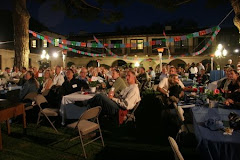



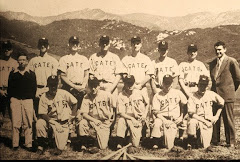
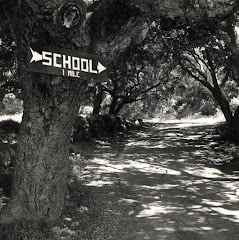
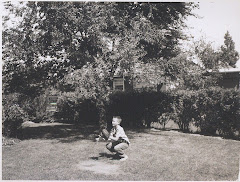
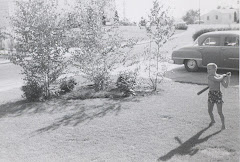
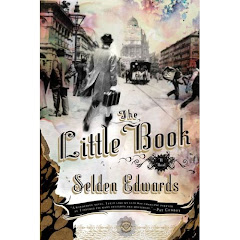
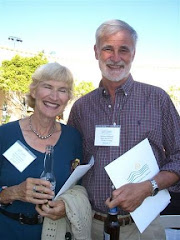

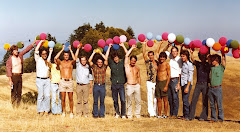
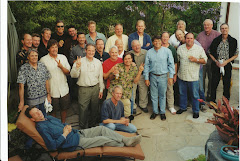
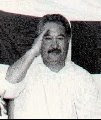




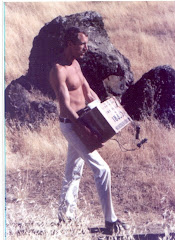





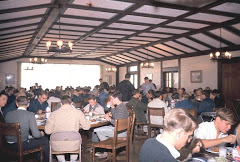
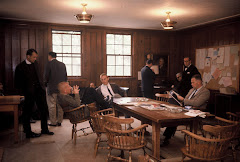













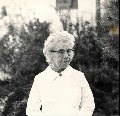.jpg)
